 Hans Horst Meyer Award
Hans Horst Meyer Award
sponsored by 
|
|
The Hans Horst Meyer Award is awarded annually by the Austrian Pharmacological Society (APHAR) in order to honour outstanding achievements of
young scientists in basic research in the field of experimental pharmacology and toxicology as well as clinical pharmacology and to support
their further career.
The award shall be given to scientists who at the deadline for submission have not yet reached the age of 35. The prize is awarded for
scientific papers which have been published in a generally recognised scientific publication medium in the last 2 years or which have been
accepted for publication therein. It is not permitted to submit the publication for another award. Publications that have already been awarded
another prize will not be taken into consideration. Applicants must be a member of APHAR.
The award sum is 2,000 Euros and is generously provided by Roche Austria GmbH.
Statutes of the Hans Horst Meyer Award.
|
Recipient 2023:
|
|
 Marco NIELLO
(Department of Pharmacology, Centre for Physiology and Pharmacology of the Medical University of Viella) for the publication:
"Persistent binding at dopamine transporters determines sustained psychostimulant effect"
(PNAS, 2023; 120(6):e2114204120)
Marco NIELLO
(Department of Pharmacology, Centre for Physiology and Pharmacology of the Medical University of Viella) for the publication:
"Persistent binding at dopamine transporters determines sustained psychostimulant effect"
(PNAS, 2023; 120(6):e2114204120)
|
Recipients 2022:
(double call for 2021 and 2022)
|
|
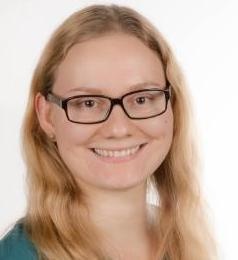 Eva GRUDEN
(Division of Pharmacology, Otto Loewi Research Centre of the Medical University of Graz) for the publication:
"The anti-parasitic drug miltefosine suppresses activation of human eosinophils and ameliorates allergic inflammation in mice"
(Br. J. Pharmacol., 2021; 178(5):1234–1248)
Eva GRUDEN
(Division of Pharmacology, Otto Loewi Research Centre of the Medical University of Graz) for the publication:
"The anti-parasitic drug miltefosine suppresses activation of human eosinophils and ameliorates allergic inflammation in mice"
(Br. J. Pharmacol., 2021; 178(5):1234–1248)
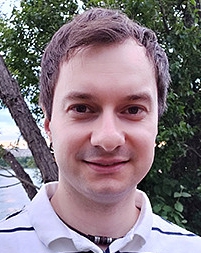 Edin MURATSPAHIĆ
(Department of Pharmacology, Medical University of Vienna) for the publication:
"Design of a Stable Cyclic Peptide Analgesic Derived from Sunflower Seeds that Targets the κ-Opioid Receptor for the Treatment of Chronic Abdominal Pain"
(J. Med. Chem., 2021; 64(13):9042–9055)
Edin MURATSPAHIĆ
(Department of Pharmacology, Medical University of Vienna) for the publication:
"Design of a Stable Cyclic Peptide Analgesic Derived from Sunflower Seeds that Targets the κ-Opioid Receptor for the Treatment of Chronic Abdominal Pain"
(J. Med. Chem., 2021; 64(13):9042–9055)
|
|
Award 2020:
|
|
No award was given in 2020 because of the postponement of the 26th Scientific Symposium of APHAR from 2020
to 2022 due to the Covid-19 pandemic.
|
|
Recipient 2019:
|
|
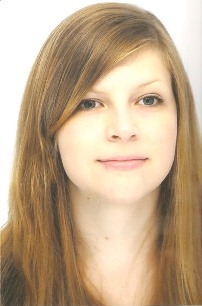 Anna THEILER
(Chair of Pharmacology, Otto Loewi Rsearch Centre of the Medical University of Graz) for the publication:
"Butyrate ameliorates allergic airway inflammation by limiting eosinophil trafficking and survival"
(J. Allergy Clin. Immunol., 2019; 144(3):764–766)
Anna THEILER
(Chair of Pharmacology, Otto Loewi Rsearch Centre of the Medical University of Graz) for the publication:
"Butyrate ameliorates allergic airway inflammation by limiting eosinophil trafficking and survival"
(J. Allergy Clin. Immunol., 2019; 144(3):764–766)
|
|
Recipient 2018:
|
|
 Shreyas BHAT
(Department of Pharmacology of the Medical University of Vienna) for the publication:
"Conformational state interactions provide clues to the pharmacochaperone potential of serotonin transporter partial substrates"
(J. Biol. Chem, 2017; 292(40):16773–16786)
Shreyas BHAT
(Department of Pharmacology of the Medical University of Vienna) for the publication:
"Conformational state interactions provide clues to the pharmacochaperone potential of serotonin transporter partial substrates"
(J. Biol. Chem, 2017; 292(40):16773–16786)
|
|
Recipient 2017:
|
|
 Carine KERN
(Department of Pharmacology of the Medical University of Vienna) for the publication:
"The N terminus specifies the switch between transport modes of the human serotonin transporter"
(J. Biol. Chem., 2017; 292(9):3603–3613)
Carine KERN
(Department of Pharmacology of the Medical University of Vienna) for the publication:
"The N terminus specifies the switch between transport modes of the human serotonin transporter"
(J. Biol. Chem., 2017; 292(9):3603–3613)
|
|
Recipient 2016:
|
|
 Luca ZANGRANDI
(Department of Pharmacology of the Medical University of Innsbruck) for the publication:
"The G-protein biased partial κ opioid receptor agonist 6′-GNTI blocks hippocampal paroxysmal discharges without inducing aversion"
(Br. J. Pharmacol., 2016; 173(11):1756–1767)
Luca ZANGRANDI
(Department of Pharmacology of the Medical University of Innsbruck) for the publication:
"The G-protein biased partial κ opioid receptor agonist 6′-GNTI blocks hippocampal paroxysmal discharges without inducing aversion"
(Br. J. Pharmacol., 2016; 173(11):1756–1767)
|
|
Recipient 2015:
|
|
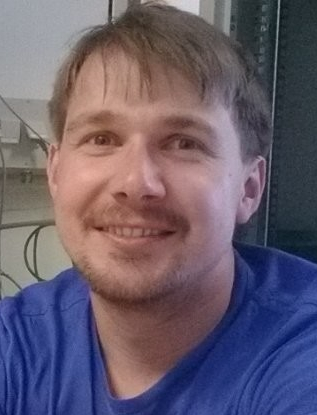 Andreas LIEB
(Department of Pharmacology and Toxicology of the University of Innsbruck) for the publication:
"CACNA1D de novo mutations in autism spectrum disorders activate Cav1.3 L-type calcium channels"
(Biol. Psychiatry, 2015; 77(9): 816–822)
Andreas LIEB
(Department of Pharmacology and Toxicology of the University of Innsbruck) for the publication:
"CACNA1D de novo mutations in autism spectrum disorders activate Cav1.3 L-type calcium channels"
(Biol. Psychiatry, 2015; 77(9): 816–822)
|
|
Recipients 2014:
|
|
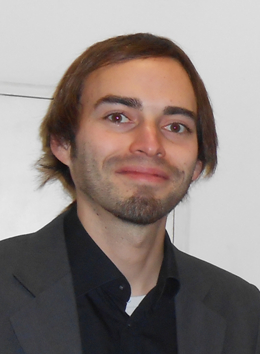 Thomas STEINKELLNER
(Department of Pharmacology of the Medical University of Vienna) for the publication:
"In vivo amphetamine action is contingent on αCaMKII"
(Neuropsychopharmacology, 2014; 39: 2681–2693)
Thomas STEINKELLNER
(Department of Pharmacology of the Medical University of Vienna) for the publication:
"In vivo amphetamine action is contingent on αCaMKII"
(Neuropsychopharmacology, 2014; 39: 2681–2693)
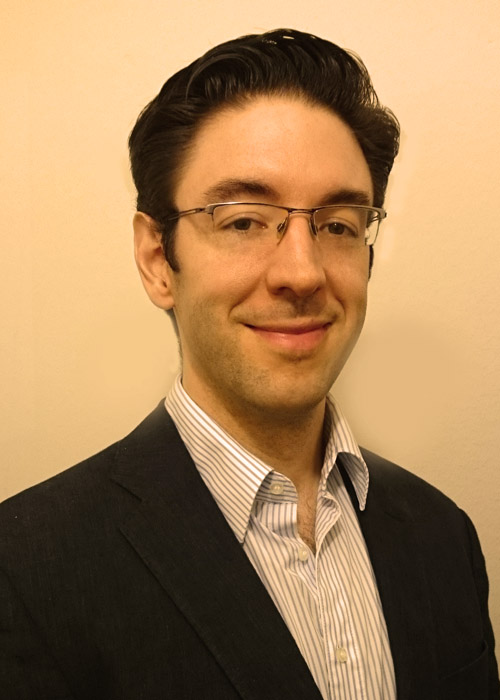 Patrick THURNER
(Department of Pharmacology of the Medical University of Vienna) for the publication:
"A two-state model for the diffusion of the A2A adenosine receptor in hippocampal neurons: Agonist-induced switch to slow mobility is modified by synapse-associated protein 102 (SAP102)"
(J. Biol. Chem., 2013; 289: 9263–9274)
Patrick THURNER
(Department of Pharmacology of the Medical University of Vienna) for the publication:
"A two-state model for the diffusion of the A2A adenosine receptor in hippocampal neurons: Agonist-induced switch to slow mobility is modified by synapse-associated protein 102 (SAP102)"
(J. Biol. Chem., 2013; 289: 9263–9274)
|
|
Recipientin 2013:
|
|
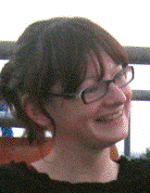 Julia KARGL
(Department of Experimental and Clinical Pharmacology of the Medical University of Graz) for the publication:
"The cannabinoid receptor CB1 mediates the signaling properties of the lysophosphatidylinositol receptor GPR55"
(J. Biol. Chem., 2012; 287: 44234–44248)
Julia KARGL
(Department of Experimental and Clinical Pharmacology of the Medical University of Graz) for the publication:
"The cannabinoid receptor CB1 mediates the signaling properties of the lysophosphatidylinositol receptor GPR55"
(J. Biol. Chem., 2012; 287: 44234–44248)
|
|
Recipientin 2012:
|
|
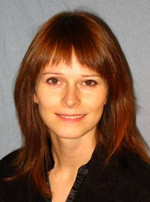 Miriam SEDEJ
(Department of Experimental and Clinical Pharmacology of the Medical University of Graz) for the publication:
"D-type prostanoid receptor enhances the signalling of chemoattractant receptor-homologous molecule expressed on TH2 cells"
(J. Allergy Clin. Immunol., 2012; 129: 492–500)
Miriam SEDEJ
(Department of Experimental and Clinical Pharmacology of the Medical University of Graz) for the publication:
"D-type prostanoid receptor enhances the signalling of chemoattractant receptor-homologous molecule expressed on TH2 cells"
(J. Allergy Clin. Immunol., 2012; 129: 492–500)
|
|
Recipientin 2011:
|
|
 Sonja SUCIC
(Department of Pharmacology of the Medical University of Vienna) for the publication:
"The serotonin transporter is an exclusive client of the coat protein complex II (COPII) component SEC24C"
(J. Biol. Chem., 2011; 286: 16482–16490)
Sonja SUCIC
(Department of Pharmacology of the Medical University of Vienna) for the publication:
"The serotonin transporter is an exclusive client of the coat protein complex II (COPII) component SEC24C"
(J. Biol. Chem., 2011; 286: 16482–16490)
|
|
Recipient 2010:
|
|
 Klaus SCHICKER
(Department of Pharmacology of the Medical University of Vienna) for the publication:
"P2Y1 receptors mediate an activation of neuronal calcium-dependent K+ channels"
(J. Physiol., 2010; 558 (Pt. 19): 3713–3725)
Klaus SCHICKER
(Department of Pharmacology of the Medical University of Vienna) for the publication:
"P2Y1 receptors mediate an activation of neuronal calcium-dependent K+ channels"
(J. Physiol., 2010; 558 (Pt. 19): 3713–3725)
|
|
Recipientin 2009:
|
|
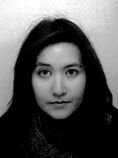 Olivia SIMMA
(Department of Pharmacology of the Medical University of Vienna; derzeit Immunology Frontier Research Center, Osaka University) for the publication:
"Identification of an indispensable role for tyrosine kinase 2 in CTL-mediated tumor surveillance"
(Cancer Res., 2009; 69: 203–211)
Olivia SIMMA
(Department of Pharmacology of the Medical University of Vienna; derzeit Immunology Frontier Research Center, Osaka University) for the publication:
"Identification of an indispensable role for tyrosine kinase 2 in CTL-mediated tumor surveillance"
(Cancer Res., 2009; 69: 203–211)
|
|
Recipients 2008:
|
|
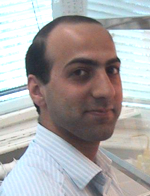 Nariman BALENGA
(Department of Experimental and Clinical Pharmacology of the Medical University of Graz) for the publication:
"The GPR55 ligand L-α-lysophosphatidylinositol promotes RhoA-dependent Ca2+ signalling and NFAT activation"
(FASEB J., 2009; 23: 183–193)
Nariman BALENGA
(Department of Experimental and Clinical Pharmacology of the Medical University of Graz) for the publication:
"The GPR55 ligand L-α-lysophosphatidylinositol promotes RhoA-dependent Ca2+ signalling and NFAT activation"
(FASEB J., 2009; 23: 183–193)
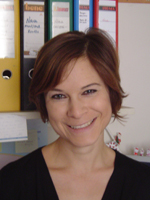 Eva-Maria ZEBEDIN
(Department of Pharmacology of the Medical University of Vienna) for the publication:
"Leukemic challenge unmasks a requirement for PI3Kδ in NK-cell-mediated tumor surveillance"
(Blood, 2008; 112: 4655–4664)
Eva-Maria ZEBEDIN
(Department of Pharmacology of the Medical University of Vienna) for the publication:
"Leukemic challenge unmasks a requirement for PI3Kδ in NK-cell-mediated tumor surveillance"
(Blood, 2008; 112: 4655–4664)
|
| |
| | |
 Hans Horst Meyer Award
Hans Horst Meyer Award
 Marco NIELLO
(Department of Pharmacology, Centre for Physiology and Pharmacology of the Medical University of Viella) for the publication:
"Persistent binding at dopamine transporters determines sustained psychostimulant effect"
(
Marco NIELLO
(Department of Pharmacology, Centre for Physiology and Pharmacology of the Medical University of Viella) for the publication:
"Persistent binding at dopamine transporters determines sustained psychostimulant effect"
( Eva GRUDEN
(Division of Pharmacology, Otto Loewi Research Centre of the Medical University of Graz) for the publication:
"The anti-parasitic drug miltefosine suppresses activation of human eosinophils and ameliorates allergic inflammation in mice"
(
Eva GRUDEN
(Division of Pharmacology, Otto Loewi Research Centre of the Medical University of Graz) for the publication:
"The anti-parasitic drug miltefosine suppresses activation of human eosinophils and ameliorates allergic inflammation in mice"
( Edin MURATSPAHIĆ
(Department of Pharmacology, Medical University of Vienna) for the publication:
"Design of a Stable Cyclic Peptide Analgesic Derived from Sunflower Seeds that Targets the κ-Opioid Receptor for the Treatment of Chronic Abdominal Pain"
(
Edin MURATSPAHIĆ
(Department of Pharmacology, Medical University of Vienna) for the publication:
"Design of a Stable Cyclic Peptide Analgesic Derived from Sunflower Seeds that Targets the κ-Opioid Receptor for the Treatment of Chronic Abdominal Pain"
( Anna THEILER
(Chair of Pharmacology, Otto Loewi Rsearch Centre of the Medical University of Graz) for the publication:
"Butyrate ameliorates allergic airway inflammation by limiting eosinophil trafficking and survival"
(
Anna THEILER
(Chair of Pharmacology, Otto Loewi Rsearch Centre of the Medical University of Graz) for the publication:
"Butyrate ameliorates allergic airway inflammation by limiting eosinophil trafficking and survival"
( Shreyas BHAT
(Department of Pharmacology of the Medical University of Vienna) for the publication:
"Conformational state interactions provide clues to the pharmacochaperone potential of serotonin transporter partial substrates"
(
Shreyas BHAT
(Department of Pharmacology of the Medical University of Vienna) for the publication:
"Conformational state interactions provide clues to the pharmacochaperone potential of serotonin transporter partial substrates"
( Carine KERN
(Department of Pharmacology of the Medical University of Vienna) for the publication:
"The N terminus specifies the switch between transport modes of the human serotonin transporter"
(
Carine KERN
(Department of Pharmacology of the Medical University of Vienna) for the publication:
"The N terminus specifies the switch between transport modes of the human serotonin transporter"
( Luca ZANGRANDI
(Department of Pharmacology of the Medical University of Innsbruck) for the publication:
"The G-protein biased partial κ opioid receptor agonist 6′-GNTI blocks hippocampal paroxysmal discharges without inducing aversion"
(
Luca ZANGRANDI
(Department of Pharmacology of the Medical University of Innsbruck) for the publication:
"The G-protein biased partial κ opioid receptor agonist 6′-GNTI blocks hippocampal paroxysmal discharges without inducing aversion"
( Andreas LIEB
(Department of Pharmacology and Toxicology of the University of Innsbruck) for the publication:
"CACNA1D de novo mutations in autism spectrum disorders activate Cav1.3 L-type calcium channels"
(
Andreas LIEB
(Department of Pharmacology and Toxicology of the University of Innsbruck) for the publication:
"CACNA1D de novo mutations in autism spectrum disorders activate Cav1.3 L-type calcium channels"
( Thomas STEINKELLNER
(Department of Pharmacology of the Medical University of Vienna) for the publication:
"In vivo amphetamine action is contingent on αCaMKII"
(
Thomas STEINKELLNER
(Department of Pharmacology of the Medical University of Vienna) for the publication:
"In vivo amphetamine action is contingent on αCaMKII"
( Patrick THURNER
(Department of Pharmacology of the Medical University of Vienna) for the publication:
"A two-state model for the diffusion of the A2A adenosine receptor in hippocampal neurons: Agonist-induced switch to slow mobility is modified by synapse-associated protein 102 (SAP102)"
(
Patrick THURNER
(Department of Pharmacology of the Medical University of Vienna) for the publication:
"A two-state model for the diffusion of the A2A adenosine receptor in hippocampal neurons: Agonist-induced switch to slow mobility is modified by synapse-associated protein 102 (SAP102)"
( Julia KARGL
(Department of Experimental and Clinical Pharmacology of the Medical University of Graz) for the publication:
"The cannabinoid receptor CB1 mediates the signaling properties of the lysophosphatidylinositol receptor GPR55"
(
Julia KARGL
(Department of Experimental and Clinical Pharmacology of the Medical University of Graz) for the publication:
"The cannabinoid receptor CB1 mediates the signaling properties of the lysophosphatidylinositol receptor GPR55"
( Miriam SEDEJ
(Department of Experimental and Clinical Pharmacology of the Medical University of Graz) for the publication:
"D-type prostanoid receptor enhances the signalling of chemoattractant receptor-homologous molecule expressed on TH2 cells"
(
Miriam SEDEJ
(Department of Experimental and Clinical Pharmacology of the Medical University of Graz) for the publication:
"D-type prostanoid receptor enhances the signalling of chemoattractant receptor-homologous molecule expressed on TH2 cells"
( Sonja SUCIC
(Department of Pharmacology of the Medical University of Vienna) for the publication:
"The serotonin transporter is an exclusive client of the coat protein complex II (COPII) component SEC24C"
(
Sonja SUCIC
(Department of Pharmacology of the Medical University of Vienna) for the publication:
"The serotonin transporter is an exclusive client of the coat protein complex II (COPII) component SEC24C"
( Klaus SCHICKER
(Department of Pharmacology of the Medical University of Vienna) for the publication:
"P2Y1 receptors mediate an activation of neuronal calcium-dependent K+ channels"
(
Klaus SCHICKER
(Department of Pharmacology of the Medical University of Vienna) for the publication:
"P2Y1 receptors mediate an activation of neuronal calcium-dependent K+ channels"
( Olivia SIMMA
(Department of Pharmacology of the Medical University of Vienna; derzeit Immunology Frontier Research Center, Osaka University) for the publication:
"Identification of an indispensable role for tyrosine kinase 2 in CTL-mediated tumor surveillance"
(
Olivia SIMMA
(Department of Pharmacology of the Medical University of Vienna; derzeit Immunology Frontier Research Center, Osaka University) for the publication:
"Identification of an indispensable role for tyrosine kinase 2 in CTL-mediated tumor surveillance"
( Nariman BALENGA
(Department of Experimental and Clinical Pharmacology of the Medical University of Graz) for the publication:
"The GPR55 ligand L-α-lysophosphatidylinositol promotes RhoA-dependent Ca2+ signalling and NFAT activation"
(
Nariman BALENGA
(Department of Experimental and Clinical Pharmacology of the Medical University of Graz) for the publication:
"The GPR55 ligand L-α-lysophosphatidylinositol promotes RhoA-dependent Ca2+ signalling and NFAT activation"
( Eva-Maria ZEBEDIN
(Department of Pharmacology of the Medical University of Vienna) for the publication:
"Leukemic challenge unmasks a requirement for PI3Kδ in NK-cell-mediated tumor surveillance"
(
Eva-Maria ZEBEDIN
(Department of Pharmacology of the Medical University of Vienna) for the publication:
"Leukemic challenge unmasks a requirement for PI3Kδ in NK-cell-mediated tumor surveillance"
(